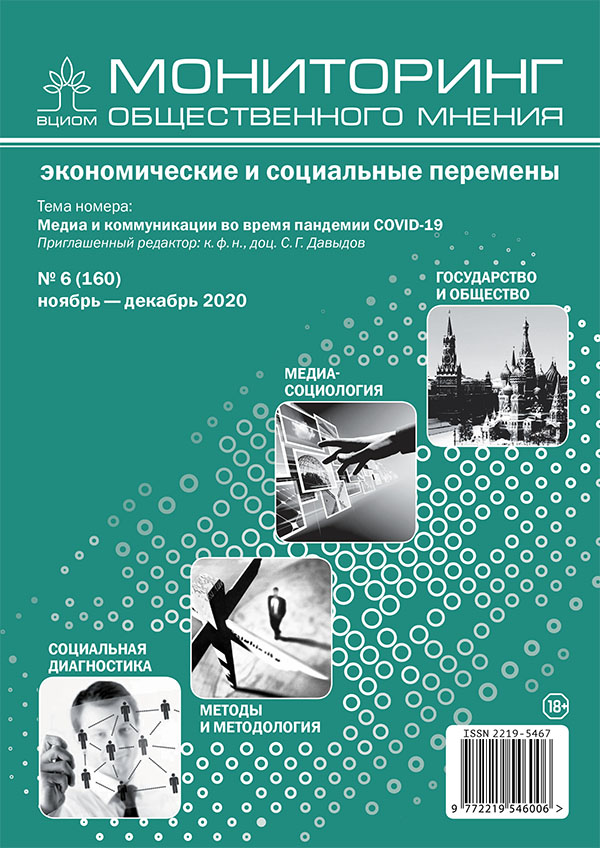Believe it or Not: Public Opinion and Rumors About COVID-19
DOI:
https://doi.org/10.14515/monitoring.2020.6.1752Keywords:
COVID-19, rumours, fake news, experiment, list experimentAbstract
The problem of answering sensitive questions does not have a unique solution and may vary depending on the topic or the country. The problem is particularly important in times of crisis when unverified information can cause negative social effects. With a case study involving students from a large Russian university the present study aims to test list experimental design to define the percentage of those individuals who believe in rumours about COVID-19. The authors found that 15.6% of students believe in rumours. This share is much higher in the survey carried out using ulist experimental design as compared to direct question technique. The work confirms the relevance of list experimental design to study sensitive topics, in particular, people’s belief in rumours.
Acknowledgments. The study is funded by the Russian Foundation for Basic Research (RFBR) no. 20-011-31725 “Mechanisms of Public Opinion Formation under the Crisis Media Agenda”.
Downloads
Published
How to Cite
Issue
Section
License
Copyright (c) 2020 Monitoring of Public Opinion: Economic and Social Changes Journal (Public Opinion Monitoring) ISSN 2219-5467

This work is licensed under a Creative Commons Attribution-NonCommercial-ShareAlike 4.0 International License.






